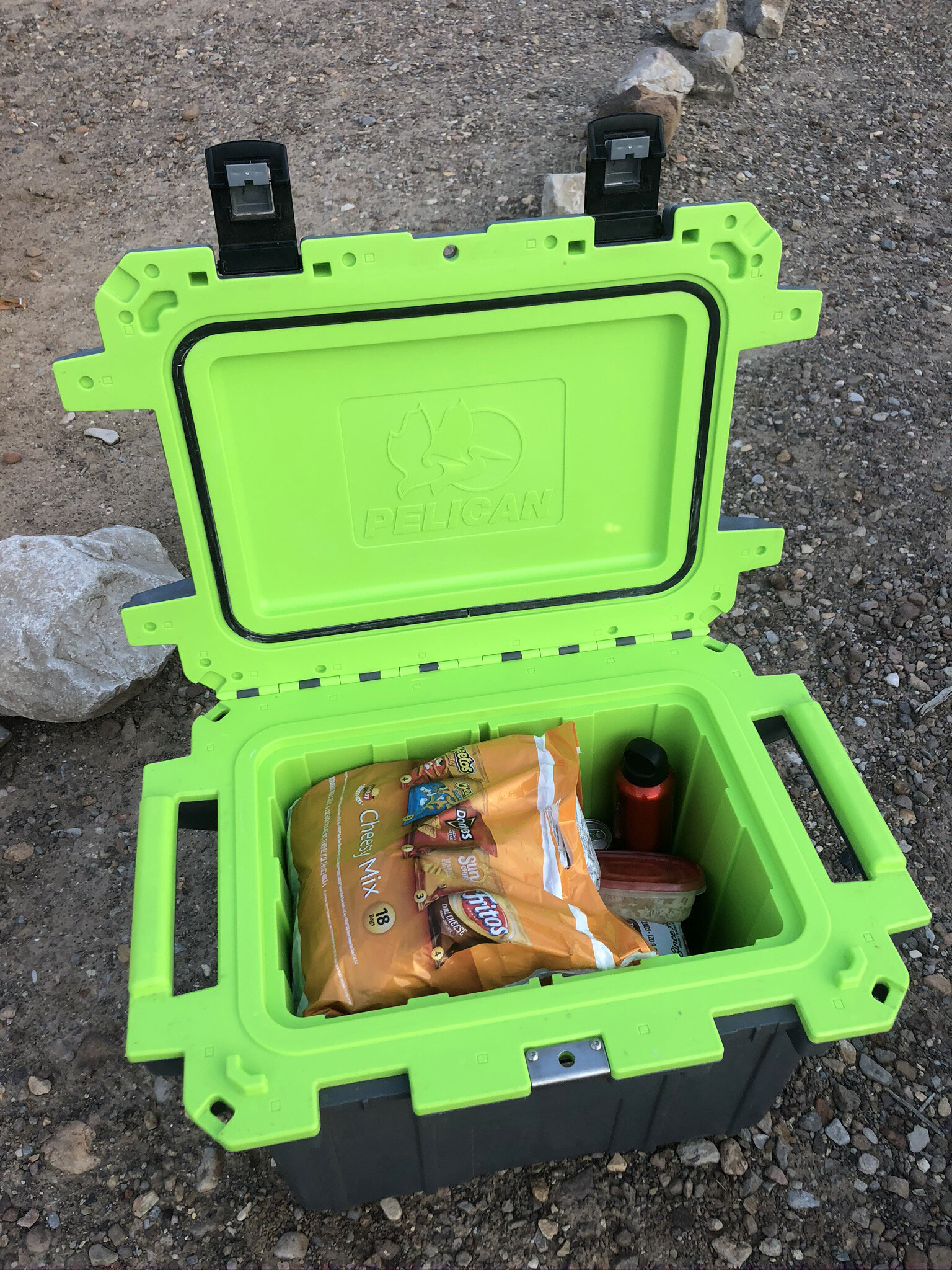Aside from determining how to properly modify your vehicle based on the type of travel you’re planning, storing gear and keeping food organized (and cold) are arguably two of the most calculated considerations when planning a trip. I’ve used Rubbermaid-branded containers to store my gear along with a foam ice chest from the local grocery store. I’ve also used stout, aluminum boxes and $2,500 fridges. Each end of the spectrum has its merits and I’m all for whatever fits your budget and your need.
Founded in 1976, Pelican has evolved its product line to meet the demands of adventurists everywhere, with a host of products proudly made in the USA. Over the years I’ve grown fond of their storage and cooling solutions because they’re built tough and provide the versatility I look for in all the gear I use.
Pelican’s Air Case 1535 is as versatile as they come. Its shell is a lightweight polymer that’s designed to take a beating in the field and is sized to make it an excellent option as a carry-on for flights. It has a pair of wheels and a durable, retractable handle that make it easy to load/unload from a vehicle, and optional padding and TrekPak dividers allow for customization of the interior to keep specific pieces of gear, camera equipment, and other accessories safe and protected. It’s also airtight, with a purge valve to keep water and dust out while balancing air pressure. I’ve used the Air Case 1535 on every trip I’ve made in 2019, spanning the width of the U.S. It’s been dropped from the back of my Land Cruiser, piled upon with heavy gear, and used on two flights. The Air Case 1535 looks and functions as well now as it did the day I began using it, with no concern at all my contents would be damaged.
As for keeping food organized and cold, we published an article way back in Issue 5 highlighting a variety of ice chests/coolers as a less expensive alternative to a portable fridge. I won’t go into the merits of a cooler versus fridge here (you can read the pros and cons in Issue 5’s ice cooler article as well as Issue 23’s article on fridge/freezers), though I will say I’ve used Pelican’s 50 qt. Elite Cooler on every trip I’ve been on since May 2019 and, mated with several pre-frozen ice packs, the Elite Cooler can more than adequately keep your food plenty cold over a 3-4 day journey without the hassle of melted ice.
On the outside, the lid of the cooler is highlighted by four molded cup holders, which are nice when using the cooler as a table while at basecamp, along with the integrated bottle opener. Additionally, a measurement grid in U.S. and metric units is a handy use of space for fishermen and outdoorsmen after a day in the field. The latches are secure and durable, and the lid and body of the cooler are designed to allow for a padlock to provide additional security.
On the inside, there’s plenty of volume for a weekend trip as a family, or a weeklong journey as a couple. I’ve been on solo trips when the Elite Cooler has provided plenty of cold storage for my drinks and food for eight days, as well as family trips when the volume was more than adequate for 3-4 days with a family of five. And at $299 and just as useable in the vehicle as outside the vehicle, it’s certainly a budget-conscious alternative for those who can’t afford or don’t want to spend the money on a fridge/freezer. I will note I do love having a fridge in the vehicle but unless you have a portable power solution, such as the Dometic PLB40 featured in this issue, keeping a fridge powered at basecamp outside the vehicle is a challenge.
Pelican offers the Air Case and their Elite Cooler line-up in varying sizes based on space and need, and I can say undoubtedly the cost-benefit of their products is a proven solution whether you’re heading out for a weekend, weeklong, or year-long journey.




